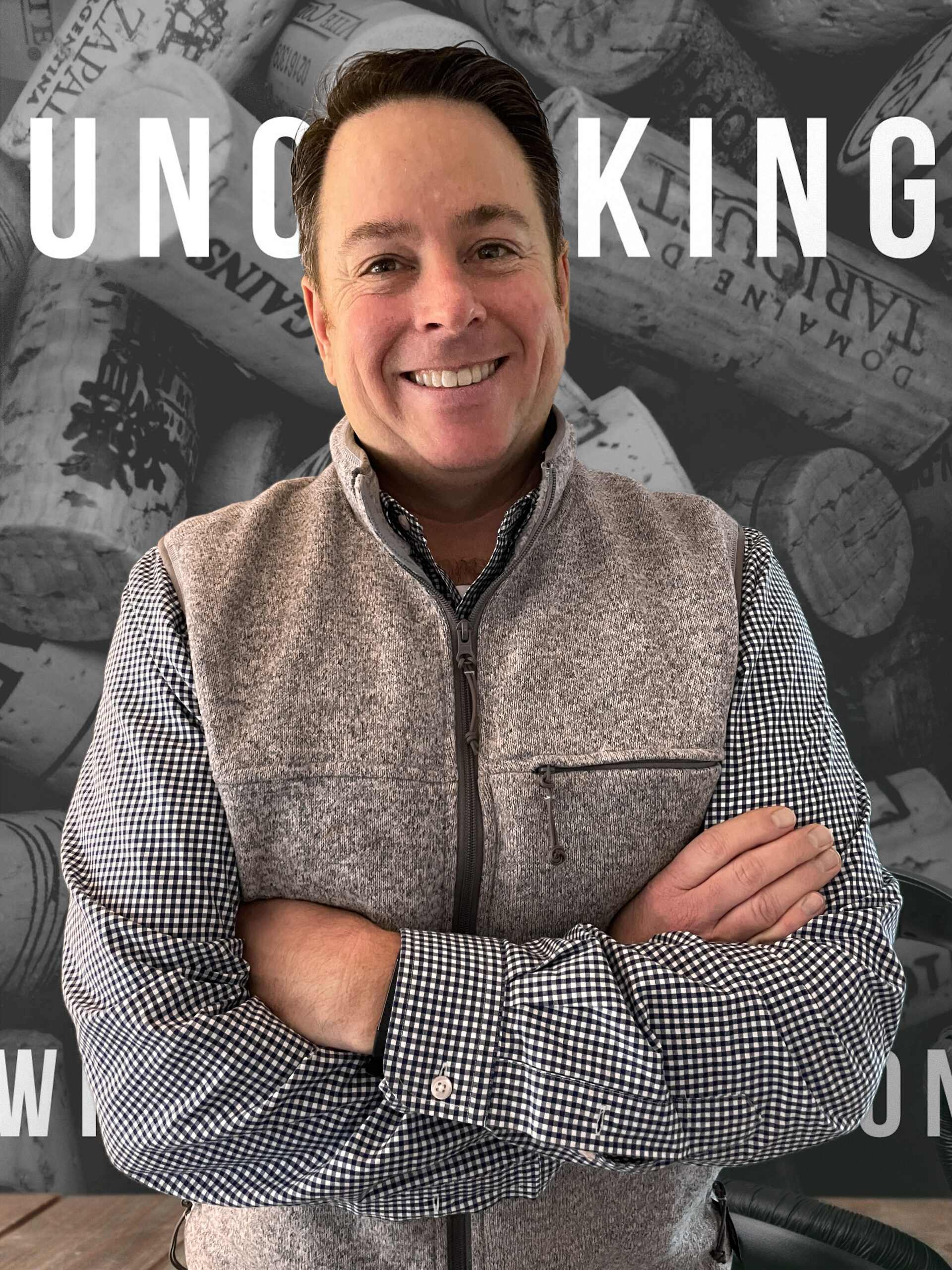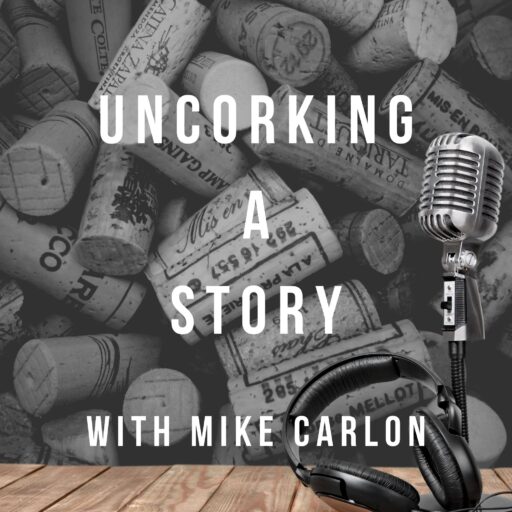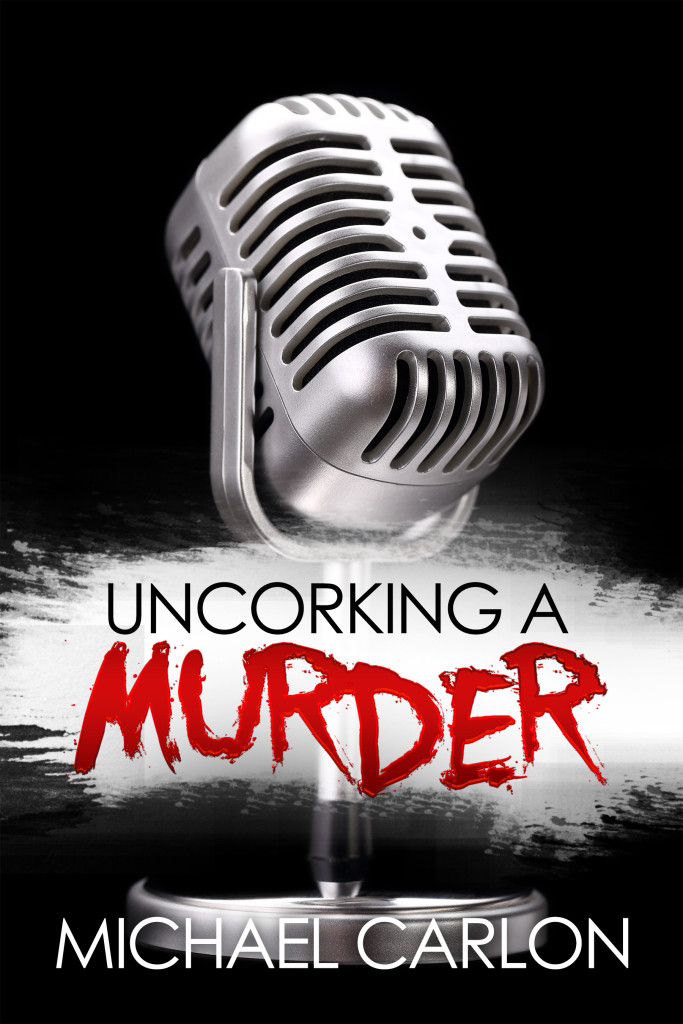uncorking a murder
A retired detective tight on time races against the clock to help set an innocent man free.
Five years ago, Mia Michaels was abducted and killed immediately after her husband went missing. Detective Rodney Peters hunted down an unlikely suspect who wound up convicted for her murder—even though the evidence against him didn’t add up.
Now retired from the Ft. Lauderdale Police Department, Rodney’s days are numbered due to his declining health, though he’s relentless in pursing the truth of what really happened to Mia in the hopes of setting an innocent man free—a man he helped put away. With no one left to turn to for help, Rodney enlists the assistance of Farrah Graham, host of the wildly popular Uncorking a Murder podcast, to uncover the truth of what really happened to Mia Michaels.
Interested to hear why a retired detective is driven to have a conviction overturned, Farrah and her intern Jimmy “Doubts” follow their curiosity down to Ft. Lauderdale where they uncover a conspiracy involving a deranged CEO, his despondent lover, and a former IRA hitman who all have a vested interest in keeping the truth about Mia Michaels’ death hidden. Together Rodney, Farrah, and Jimmy race against the clock as events unfold like a wheel inside a wheel.
Amazon Review
Amazon Review
Amazon Review
CHARACTERS
Rodney Peters
A retired detective who feels as if he put away the wrong man for the murder of Mia Michaels. Reaches out to a popular podcast host for help.
Jimmy Doubts
Undergraduate student interning for Uncorking a Muder. Has a propensity to question everything.
Mia Michaels
Killed by an assassian after stumbling upon her husband’s research.
Farrah Graham
Former lawyer and host of the Uncorking a Murder podcast. She agrees to help re-investigate the case against Sonny Michaels.
Sonny Michaels
A scientist who found a cure for diabetes and wrongfully convicted of his wife’s murder.
Adrian Tepes
Greedy and narcissistic CEO of Tepes Therapeutics, Sonny Michaels’ employer.
Chapter 1
Just when he thought the day couldn’t get any more depressing, Derek Krunch found himself checking into a short-stay residence called the Bali Hai hotel. No one was behind the front desk, so he obeyed the instruction to tap the bell for assistance. No response. He tapped the bell again and a moment later was confronted by an Asian woman whom he apparently had taken away from something more important than tending to her front-desk duties; by her age it was most likely a rerun of Murder She Wrote. If he were a betting man, Derek would have put his pension on the line and predicted that the name on her name tag would be Bloody Mary; sure enough, it was. Derek thought to himself, What can I say? I was in my high school’s production of South Pacific. That was a long time ago, though, and this was far from an enchanted evening.
“Welcome to Bali Hai,” she said. “This is your special hotel. Do you need room for the night?”
Mary spoke with the cadence of an island girl from the musical. Derek wondered if she actually spoke like that or if she did so out of compliance to a rule in the hotel’s employee handbook, but at that moment he wasn’t about to question her motives.
“Yes, please,” he responded and then bent down to pet his dog, Eddie. Most people name their dogs traditional dog names like Murphy, Reilly, or Spanky. Derek, on the other hand, named his dog after the mascot of his favorite heavy metal band, Iron Maiden. (You’re not alone—his wife didn’t understand his fascination with the band either.)
“Fifty dolla extra for Fido down there,” Mary tells Derek, not bothering to look at the dog.
“Eddie,” Derek replied.
“Huh?” the woman grunted.
“The dog’s name is Eddie, not Fido.”
“Eddie strange name for a dog. Either way, fifty dolla extra.”
Like I said, you would not be the first to question the name Derek had bestowed on his four-legged companion. “Fine,” he replied.
“To check in, you either need to show me some ID and pay cash or give me credit card. What’s it gonna be, Detective?”
Derek chose the Bali Hai hotel because it came recommended from other guys on the Pompano Beach police force who, at one point or another, found themselves in a similar situation as Derek that evening. Marriage isn’t easy for a cop; the pay isn’t great and most spouses spend a lot of late nights worrying whether or not their husband or wife will come home safe. On top of the fear and anxiety over his safety, Derek’s wife admitted to him that, after fifteen years of marriage, she did not sign up for the life of a middle-class housewife. When his paycheck wasn’t enough to cover her expensive tastes, she found a job as the personal assistant to a well-known motivational speaker. Unfortunately for Derek, earlier that evening he had found said motivational speaker motivating his wife in their bedroom.
Derek knew many guys who spent a night or two at the Bali Hai after things at home went south, so it was the logical place for him to go. Plus, he knew they allowed dogs—even dogs named after heavy metal band mascots.
Derek was always interested in knowing how other people could spot a cop, so he challenged Mary with, “How did you know I was on the job?”
“Easy peasy, Detective. The only people who come in here looking for a room after nine p.m. are either ladies looking for place to boom-boom a johnny or cops who find themselves in need of shelter after things get tricky at home. You look more cop than hooker to me. Plus, you wearing bad suit, so must be detective.”
“We could use someone with your powers of observation on the force,” Derek replied. “The streets might be a lot safer.”
“No way, Detective!” Mary stated emphatically. “I can’t afford reduction in pay.”
Even a woman running the desk at a no-tell-hotel makes better money than a guy who puts his ass on the line protecting the citizens of Pompano Beach. Life is a bitch, Derek thought morosely.
Mary noticed some dried blood on his temple. “Where did you get that boo-boo on your head?”
Derek rubbed the bump on the top of his head and said, “Just another day on the job.” He handed his Pompano Beach Police Department ID over to Mary, who studied it closely.
“You name is Derek Krunch?” He just smiled and nodded. She then took another moment to study his ID more closely as Derek waited for the inevitable observation. “You rank is captain. You name is Captain Krunch. That funny!”
If only you knew how unfunny it was to be constantly compared to a children’s cereal, Derek thought. Even the mayor of Pompano Beach, who was at Derek’s promotion ceremony a few short weeks ago, couldn’t help but throw a jab his way. “Ladies and gentlemen, please clap your hands to congratulate PBPD’s newest captain, Derek Krunch. I hear he won’t get soggy in milk.” It wasn’t the mayor’s finest moment. If there was one thing Derek had learned about comedy, it’s not going for the really low-hanging fruit; doing so is usually met with blank stares and deafening silence, as the mayor quickly found out.
“Oh, Mary, if I had a dollar for every one who pointed that out . . .”
“You’d be staying at a better hotel!” she quipped before he had a chance to finish his sentence. She then handed Derek back his ID and asked, “You wanna pay cash tonight so wifey doesn’t know you here?”
Derek did want to pay cash, but not because he didn’t want his wife to know where he was. The truth was, he was over the limit on all of his credit cards, but Mary didn’t need to know that. “Something like that,” he replied.
“I give you detective special, ninety-nine dolla a night plus only twenty-five for Eddie—but if he piss on da floor, I charge more. Tenth floor okay for you, Captain Krunch?”
He was too tired to do anything other than nod his approval.
“I have you in room 1002, penthouse!” she said, handing him a key dangling from a keychain. Not a modern plastic card with a magnetic strip, but an honest-to-goodness metal key that went into a lock and must be turned clockwise.
“I assume big strong man like you don’t need help with bags, so if you need nothing else from me, I am going back to watching my stories.”
The truth was, all he had time to pack earlier was an overnight bag, so there was no need to break out the luggage cart. “What are you watching?” he asked Mary, more out of politeness than of sheer curiosity.
“Just an old soap opera called Casa Grande,” Mary replied. “That Blaze Hazelwood is hot piece of ass.”
Derek remembered the show and the actor. Both were very popular in the eighties and he remembered hearing something about Blaze on the news recently. Someone had the bright idea to try to reunite the cast of that show and, during a news segment to promote the reunion, one of his fellow cast mates spilled the beans that he lost his virginity to Bea Arthur when he was only a teenager. If that wasn’t bad enough, the poor guy was actually stabbed that same day by an obsessed fan. To Derek, it was a better storyline than anything they could write for his character on the show.
“Goodnight then, Mary,” Derek said, but she had already turned her back on Derek and was heading back to the office behind the front desk. He looked down at Eddie, who looked up at him as if he was disappointed for some reason. He was a pretty smart dog, as far as yellow Labs go. Derek had no doubt Eddie would rather be back at his house in Fort Lauderdale instead of at a second rate pilot-themed hotel in Pompano Beach, but he didn’t think his wife would have taken good care of Eddie since she threatened his life on a daily basis.
“You are better off with me, Eddie, trust me on that.”
The two made their way toward the elevator. As he walked down the hallway, Derek noticed that the entire hotel was decorated with old pictures from the World War II era. Many included pictures of airmen who had long left this earth, and Derek was pretty sure that somewhere in this hotel the ghosts of old pilots congregated and told war stories over hard drinks as they chain-smoked cigarettes.
This tie in with aviation was no surprise; the hotel was located right next to the small Pompano Beach airstrip. The airport has no commercial flights coming in or out of it; it is largely used by the business elite of Fort Lauderdale who want to avoid flying commercially out of Fort Lauderdale International. And its real claim to fame is that it houses the Goodyear Blimp, the dirigible that provides aerial shots for many of the PGA’s televised golf events during golf season.
After what seemed to be a needlessly long elevator ride up ten stories, Derek and Eddie emerged onto the tenth floor and located room number 1002. After struggling with the lock, Derek walked into a room which could only be described as “Polynesian chic meets an acid trip.” Above the two double beds were paintings looking as if they were Bob Ross originals. As he looked at one more closely, Derek noticed that what he thought were birds sitting in “happy little trees” were actually multicolored cats hanging from branches. A lava lamp had been placed on the nightstand next to one of the beds, and kimonos hung in the closet instead of the traditional terrycloth bathrobes. Derek’s mind wandered momentarily as he imagined Geddy Lee, Alex Lifeson, and Neil Peart from Rush walking through the halls of the Bali Hai Hotel wearing nothing but the kimono robes they wore on the back cover of their seminal 2112 album. A great album, but a dark time in progressive rock for style.
Derek took a plastic bag of dog food out of his overnight bag, placed it in a plastic Tupperware container, and set it in front of Eddie. The dog looked up at Derek as if to say, “Hey buddy, if you are breaking up the family, don’t I deserve some canned food or at least some Gravy Train? This dry, crunchy crap ain’t gonna cut it from here on in.”
“Sorry, buddy, I’ll pick up some better stuff tomorrow,” Derek said apologetically as he used the ice bucket as a makeshift dog bowl and filled it with water.
Tomorrow. Derek just realized he had not given too much thought about where he was going to stay tomorrow night, or even who was going to look after Eddie when he went to work. Just then it hit him how much his life was going to suck in his newfound situation. He decided to place those negative thoughts on hold for a moment and do what any other guy in his situation would do: go to the hotel bar. Before leaving the room, he turned on the radio for Eddie who seemed to like classical music. Derek found a station playing Mozart’s Marriage of Figaro; ironic given the circumstances Derek found himself in earlier this evening. Don’t do it Figaro, Figaro, Fig! Eddie finished eating and then made himself comfortable on top of one of the beds, closed his eyes, and fell asleep. Lucky bastard.
Derek tempted fate again and took the elevator down to the lobby. Again, the ride down was painfully slow, and he imagined the elevator powered by a hamster, or maybe a team of hamsters, somewhere in the hotel running in a wheel as fast as their little hamster legs could take them. Finally he made it down to the lobby, and a sign with a finger pointing to the right directed Derek to Clippers Bar and Grill.
Clippers was a traditional rectangular bar: dark wood, most likely mahogany; wooden bar stools with worn red leather on the cushioned seats. Above the bar hung a model of an old Pan Am Clipper seaplane—the flying boat made by Boeing and designed to take passengers in luxury over transoceanic flights from a past era.
The only other people at the bar was a group of two men and two women. Derek noticed that all four appeared to be straight out of the 1940s; they were using words like dame, khaki wacky, and eager beaver as if they were part of today’s vernacular. Derek motioned the bartender over to order a drink, partly to quench his thirst and partly to get a better understanding of his fellow patrons.
“What are ya having, Mack?” asked the bartender; apparently he too was into using slang from a bygone era. The name on his nameplate read Joe Cable. Great, Derek thought, another South Pacific reference.
“I’ll take a Jamison, straight up, and a draft beer,” Derek replied.
“Right-o, Daddy-o,” the bartender said, adding some sixties beatnik slang to the bar’s vocabulary.
He was back a moment later with drinks in hand.
To satisfy his curiosity about the group at the other end of the bar, Derek asked, “Say, what’s with that group at the other end of the bar? Why are they talking as if they are in a World War II flick?”
“They’re part of a film crew shooting a B-movie at the airfield across the street. They’ve been here all week, and they haven’t broken character since they arrived. You ever hear of Eric Shon?”
“The director?” Derek asked. Eric Shon was notorious for B-grade movies bordering on soft-core pornography. Chances are if you regularly watch a premium cable channel after midnight, you’ve seen at least one Eric Shon movie. Derek knew his work well.
“Yep, this is his latest project. It’s called Pacific Theatre of Pain, and from what I can gather it’s a slasher film set on an island in the South Pacific during World War II. I hear Nikki Six from Motley Crue is doing the score.”
“Sounds like a winner,” Derek said drily.
“You see that blonde at the other end of the bar?” Joe asked while washing some beer mugs behind the bar.
“Don’t you mean that dame?” Derek replied snarkily.
Ignoring this, Joe continued, “That’s Vanessa Crestwood. This is the first time she has worked with Eric Shon since her first film, Fallen Angels. They’re thinking this one could get a wide theatrical release versus the straight-to-streaming fate that befalls most of Shon’s films.”
“I’ll keep an eye out for it. Do you have a menu? I could go for something to eat.”
Joe Cable handed Derek a menu, and hovered over him as he looked it over.
“The kitchen closes in ten minutes,” Joe informed him.
Looking at the menu, Derek noticed that the Polynesian theme of the hotel didn’t extend to the kitchen. He was faced with a choice between salads, burgers, and grilled chicken—nothing remotely prepared Polynesian-style. He ordered a burger and then sipped on his Jamison.
“What brings you here, Mack?” Joe says, after returning from the kitchen to place the order. No computerized ordering system in this hotel bar.
Derek suddenly realized up that so far he had not told a single soul about what he witnessed when he went home earlier this afternoon. Surely a close friend deserved to hear the story before some lost-soul bartender at a World War II-themed roach hotel in Pompano Beach, he thought, but he quickly realized he was eager to talk with someone about it and, well, Joe asked.
“This afternoon I came home and found my wife on all fours,” he began.
“Sounds like a good afternoon to me,” Joe replied.
“She wasn’t alone. Kneeling behind her was her boss, Kyle Kessler.”
“The motivational speaker?” the bartender blurted out, loudly enough to rouse the attention of the four actors on the other side of the bar. “I’ve read all his books!”
For Derek, the only saving grace of this admission was that Joe Cable was a bald, forty-year-old bartender working at a World War II-themed bar in a South Pacific-themed hotel in Pompano Beach—not exactly a testament for Kyle Kessler’s abilities. Derek took another sip of his Jamison and continued. “Things were going south in our marriage for a long time. She wanted more than I could provide. I went home early today to surprise her, hoping that we could have a last-minute dinner out. Clearly she didn’t expect me home.”
“Does that guy still make his students dress in white and walk on hot coals?”
Derek wanted to challenge Joe’s use of the word students. In Derek’s mind, Kessler didn’t have students so much as followers. They all dressed the same, agreed to abide by the same diet, and chanted his mantras at specific times during the day. Derek’s wife bought his bullshit—hook, line, and sinker.
“Yes, their white outfits were spread all over my floor.”
“What did they do when they saw you?” Joe asked.
“That’s the fucked-up thing about it. I opened the bedroom door and found myself staring right at my wife and Kessler. She didn’t even blink or show any sign of remorse. Kessler removed himself from my wife, got off the bed, and then walked right toward me. He actually put his hand on my shoulder and told me to take a deep breath while thinking of a happier time in my life.”
“Sounds like he was trying to lead you through a guided-visualization process. It really works.”
Derek raised his eyebrows and looked Joe Gable the bartender in the eyes as if to say, “Really?” Then he continued, “Once I realized what was happening, I punched Kessler in the jaw, went to my closet and quickly packed an overnight bag, and then grabbed my dog. And then I came here.”
“What are you going to do next?”
“I haven’t figured that one out yet, Joe, but I’ll be sure to let you know when I do,” Derek said sarcastically.
“Hey, chrome dome,” Derek heard from across the bar. Clearly the actors at the other end were trying to get Joe’s attention by using another slang term from the 1940s—this one referring to the fact that Joe was bald.
“Duty calls, Daddy-o,” Joe said, while someone from the kitchen delivered Derek’s burger. “I’ll check in with you in a bit.”
Derek was about to take a bite out of his burger when the phone in his pocket began to vibrate. He put the burger down—which resembled a hockey puck more than something edible— and glanced at the number on his phone’s caller ID. He thought it might be his wife wanting to talk about the events of this afternoon. If it was, he would have sent the call directly to voicemail and attacked the burger. Unfortunately, it wasn’t. It was Detective Sam Tucan, a first-level detective who Derek took under his wing because Sam’s father, Fred, was Derek’s first partner when he was new to the job. Sam’s old man died of cancer last year, and Derek had promised him on his deathbed that he would keep an eye on Sam.
“What’s the matter, Sam?”
“Captain, I am sorry to bother you when you are off duty, but I need you to meet me by the pier.”
Sam worked homicide, so Derek knew that his bad day was about to get worse. Still, one of the perks of being captain is that he had a number of detectives available to him who could work cases, leaving him to focus on departmental responsibilities. The fact that Sam was asking Derek to meet him at the crime scene meant only one thing: the victim was either someone he knew or one of PBPD’s own.
“What’s going on?” Derek asked.
“It’s Sonny,” Sam replied. “His body just washed up on shore. He’s dead.”
Chapters
Words
Uncorking a murder is about a man seeking to atone for a mistake he made in his past and knowing when to ask for help. Ultimately it’s about how the truth shall set you free.
ABOUT THE AUTHOR

Michael Carlon is marketing professional, author, and the host of the Uncorking a Story podcast which features depth interviews with A-List authors as well as personal, motivating reflections from conversations Mike has had with the people he meets. He’s the author of the successful Farrah Graham series of books as well as stand alone novels inlcuding Return to Casa Grande, Winning Streak, and the hilarious All the F*cks I Cannot Give.
When he is not writing a novel, a magazine article, or a piece for his local newspaper, Mike earns his living as a marketing consultant traveling around the country interviewing people about their experiences with and attitudes towards his clients’ products and services. He is an expert at understanding what makes people tick and translating those insights into intelligence his clients can use to make better decisions.
Mike lives in Stamford, CT with his wife Nicole and their college-aged triplets Grace, Patrick, and Maggie. He holds a BA in Psychology from the University of Connecticut and an MBA with a concentration in marketing from Fairfield University.






